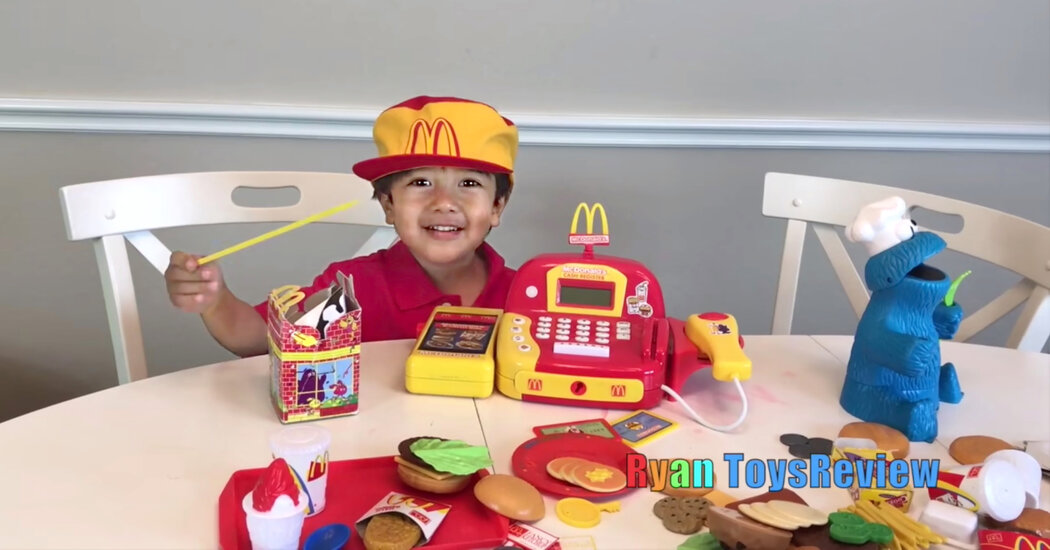“It looks like a normal child playing with their normal games, but as a researcher who studies childhood obesity, the branded products really stood out to me,” Dr. Bragg said. “When you watch these videos and the kids are pretending to bake things in the kitchen or unwrapping presents, it looks relatable. But really it’s just an incredibly diverse landscape of promotion for these unhealthy products.”
In a statement, Sunlight Entertainment, the production company for Ryan’s World, said the channel “cares deeply about the well-being of our viewers and their health and safety is a top priority for us. As such, we strictly follow all platforms terms of service, as well as any guidelines set forth by the FTC and laws and regulations at the federal, state, and local levels.”
The statement said that Ryan’s World welcomed the findings of the new study, adding: “As we continue to evolve our content we look forward to ways we might work together in the future to benefit the health and safety of our audience.”
Other popular children’s channels on YouTube show child influencers doing taste tests with Oreo cookies, Pop Tarts and Ben & Jerry’s ice cream or sitting in toy cars and ordering fast food at drive-throughs for Taco Bell, McDonald’s, Burger King, KFC and other chains. “This is basically a dream for advertisers,” said Dr. Bragg. “These kids are celebrities, and we know from other rigorous studies that younger kids prefer products that are endorsed by celebrities.”
To document the extent of the phenomenon, Dr. Bragg and her colleagues identified five of the top kid influencers on YouTube, including Ryan, and analyzed 418 of their most popular videos. They found that food or beverages were featured in those videos 271 times, and 90 percent of them were “unhealthy branded items.” Some of the brands featured most frequently were McDonald’s, Hershey’s, Skittles, Oreo, Coca-Cola, Kinder and Dairy Queen. The videos featuring junk food have collectively been viewed more than a billion times.
The researchers could not always tell which products the influencers were paid to promote, in part because sponsorships are not always clearly disclosed. The Federal Trade Commission has said that influencers should “clearly and conspicuously” disclose their financial relationships with brands whose products they endorse on social media. But critics say the policy is rarely enforced, and that influencers often ignore it.
[ad_2]
Source link


